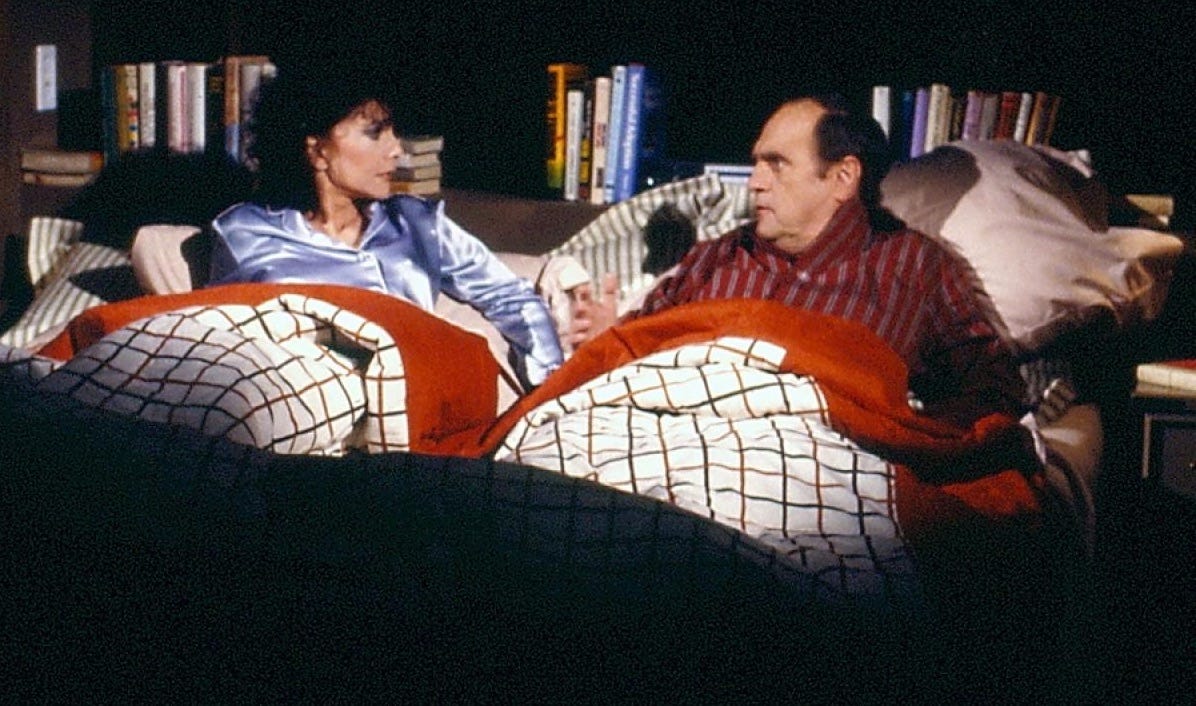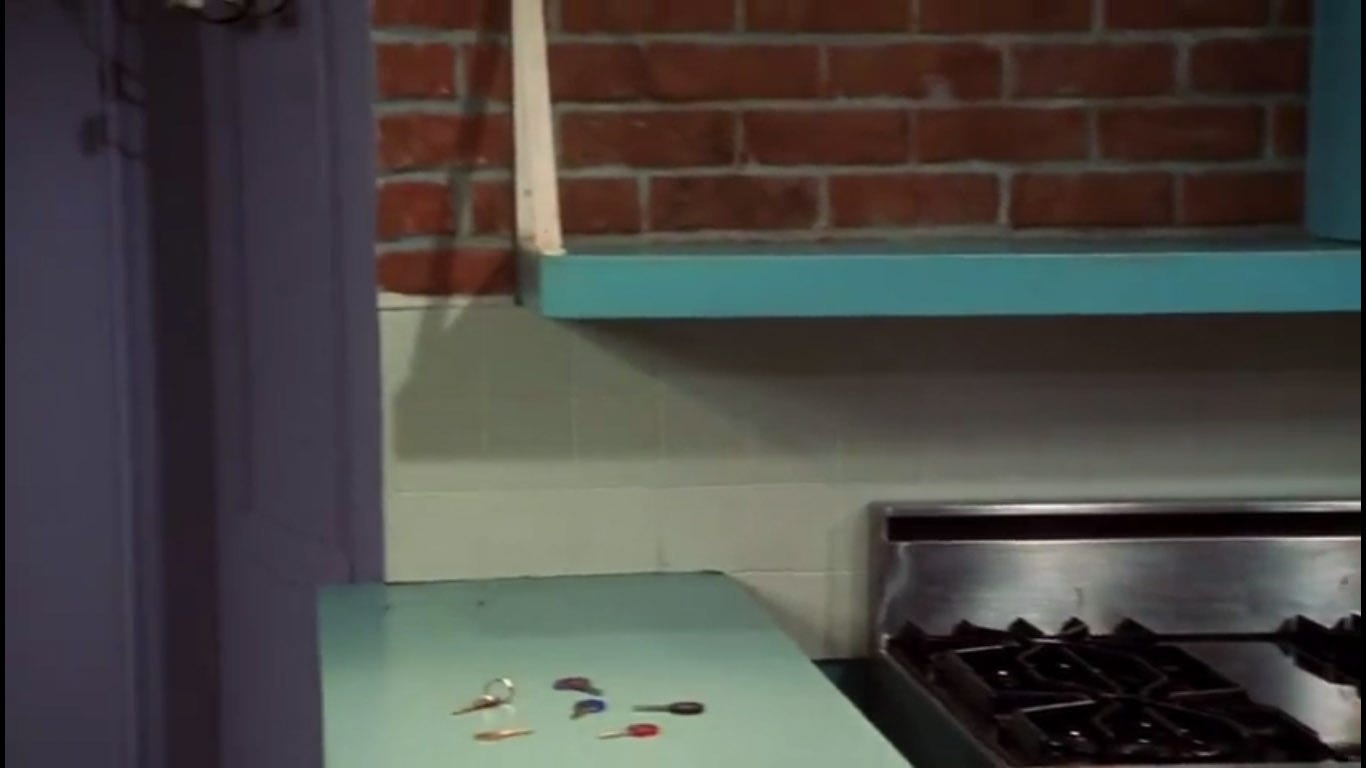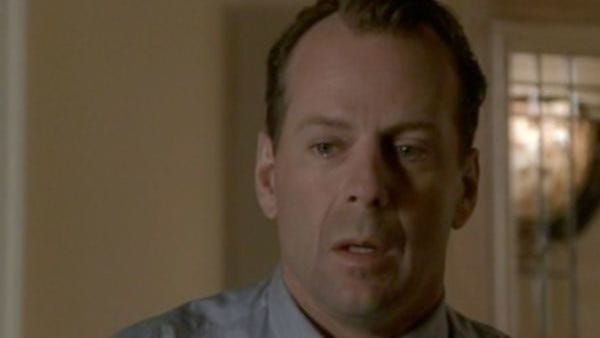For both readers and writers, I’ve been sharing my ginormous handout on endings, piece by piece. Here are Part 1, and Part 2, Part 3, and Part 4 (although you don’t have to read them in order).
Today, let’s talk about endings that play with a major change—in scope, focus, or point of view. (Of course not all endings do this; we could end in exactly the mode we’ve been in all along.)
When we’re reading along in one mode and then suddenly, right near the end, there’s a major shift in the lens, two things are accomplished:
1) It feels like an ending. We’re being shaken out of the world we were in, shaken loose from the story we were reading.
2) In the space between the old reality and the new reality, the story often finds its meaning.
Let’s take a non-literary turn and consider the ending of the show Newhart, from 1990. If you’re took young to remember this, don’t worry; I’ll explain.
After eight years of a sitcom in which Bob Newhart played the owner of a Vermont inn, he’s hit on the head with a golf ball, and wakes up in bed… with the wife of his character from his last show, The Bob Newhart Show, and he tells her that he just had the strangest dream, in which he owned a Vermont inn. And then we actually go out on the theme song and credits from that earlier show.
When I watched this in 1990, I didn’t get the joke at all—I was 12 and hadn’t seen the first series—but I did understand that this show was over, that we had irrevocably shifted frames and there was no way the story could go on.
Of course, that’s an extreme example. We can look at some more modest shifts as well.
Shifts in Scope
The Sensory Pinpoint (Zooming In):
Here, we focus in on just one immediate moment, or very specific sensory impressions. It’s a bit like a camera zooming in. And of course the image needs to be significant without feeling heavy-handed. Easier said than done.
This could be an object, as in Graham Swift’s Waterland:
On the bank in the thickening dusk, in the will-o’-the-wisp dusk, abandoned but vigilant, a motor-cycle.
Or it could be some other sensory focus, as in Edward P. Jones’s “The First Day”:
Her shoes make loud sounds in the hall. She passes through the doors and I can still hear the loud sounds of her shoes. And even when the teacher turns me toward the classrooms and I hear what must be the singing and talking of all the children in the world, I can still hear my mother’s footsteps above it all.
Other examples: Kate Chopin’s The Awakening ends on a scent; the series Friends ends with a closeup of keys on the counter.
The Pullback (Zooming Out):
Think of a crane shot, like at the end of a movie: a couple walking away down a crowded New York street, while the camera pulls away in the opposite direction. It’s a long shot, longer than any other in the movie. Maybe there’s some glorious jazz music. For literature, this might mean we’re looking at the whole town or the whole world—or maybe we’re suddenly taking in more characters, or looking at a broad expanse of time.
From Joyce’s “The Dead”:
Yes, the newspapers were right: snow was general all over Ireland. It was falling softly upon the Bog of Allen and, further westwards, softly falling into the dark mutinous Shannon waves. It was falling too upon every part of the lonely churchyard where Michael Furey lay buried. It lay thickly drifted on the crooked crosses and headstones, on the spears of the little gate, on the barren thorns. His soul swooned slowly as he heard the snow falling faintly through the universe and faintly falling, like the descent of their last end, upon all the living and the dead.
Just for fun, here’s Colum McCann’s Let the Great World Spin, in which he rapidly alternates between the zoom in and the zoom out:
Quietly, Jaslyn perches on the edge of the bed and then extends her feet, moves her legs across slowly so as not to disturb the mattress. She fixes a pillow, leans, picks a hair out of Claire’s mouth.
Jaslyn thinks again of an apricot – she does not know why, but that’s what she thinks, the skin of it, the sweetness.
The world spins. We stumble on. It is enough.
She lies on the bed beside Claire, above the sheets. The faint tang of the old woman’s breath on the air. The clock. The fan. The breeze.
The world is spinning.
Shifts in Point of View
The story doesn’t belong to the same characters anymore.
From Chinua Achebe’s Things Fall Apart. The invading European District Commissioner has just found the body of the main (and point-of-view, till now) character, Okonkwo, an Igbo man, hanging from a tree:
The Commissioner went away, taking three or four of the soldiers with him. In the many years in which he had toiled to bring civilization to different parts of Africa he had learned a number of things. One of them was that a District Commissioner must never attend to such undignified details as cutting a hanged man from the tree. Such attention would give the natives a poor opinion of him. In the book which he planned to write he would stress that point. As he walked back to the court he thought about that book. Every day brought him some new material. The story of this man who had killed a messenger and hanged himself would make interesting reading. One could almost write a whole chapter on him. Perhaps not a whole chapter but a reasonable paragraph, at any rate. There was so much else to include, and one must be firm in cutting out details. He had already chosen the title of the book, after much thought: The Pacification of the Primitive Tribes of the Lower Niger.
Note that here, the absolute disconnect between the Commissioner’s understanding of things, and the reality we’ve come to know through Okonkwo, is where we find the story’s final sucker-punch. (This passage is also, btw, Achebe’s rebuke to Conrad’s Heart of Darkness.)
Other examples: O’Connor’s “A Good Man is Hard to Find”
Shifts in Topic or Framing
Tangential Endings:
We’re changing the subject here, rather than the scope or point of view. On the surface, it’s got nothing to do with what’s come before. Except that it has everything to do with what’s come before.
From Amy Hempel’s “The Dog of the Marriage” (following a long, very interior story about adultery, and coming out of absolutely nowhere):
Did I invent this? It is like sitting in prayers at school when the headmistress says, “Who dropped lunch bags on the hockey field?” and although you went home for lunch, you think, I did, I did.
Other examples: Richard Russo’s Straight Man; Alice Munro’s Pride; John Cheever’s “The Country Husband”
The Game Changer:
A change in meaning, or in what the whole narrative has been. Think The Sixth Sense, or Newhart (above). This ending destabilizes you from everything you thought the narrative was. Since the narrative we thought we were living in has been demolished, it feels right for the story to end.
From Philip Roth’s Portnoy’s Complaint (this follows 308 pages of first-person ranting; brackets are Roth’s):
So [said the doctor]. Now vee may perhaps to begin. Yes?
It could be that the narrative itself isn’t what we thought it was (as with Ian McEwan’s Atonement) or it could be that the plot and/or characters aren’t what we thought, as with Flannery O’Connor’s “Good Country People.”
Other examples: Yann Martel’s Life of Pi; Shirley Jackson’s “The Lottery”; Alice Munro’s “Corrie.”
Warning: “It was all a dream” is of course (do I need to say it?) not going to work for basically anything other than a 1980s sitcom. Of course, what (adult) fiction writers are more likely to try is “It was all a hallucination!” or “Guess what, this whole thing has been narrated from the looney bin, gotcha!” And 99.9% of the time, these endings feel like an insult to the readers who have just given you their time.
Also keep in mind that the Game Changer, in particular, needs to be not only surprising but—in retrospect—inevitable.
The Speculative Ending:
This one accomplishes a shift in reality—by ending on what we (and probably the characters) know not to be true.
From Jonathan Safran Foer’s Everything is Illuminated, which has been about a boy coming to terms with his father’s death in 9/11; Oskar has flipped backwards through photos of the attack, and is imagining what would have happened if they could have lived that day in reverse:
I’d have said “Dad?” backward, which would have sounded the same as “Dad” forward.
He would have told me the story of the Sixth Borough, from the voice in the can at the end to the beginning, from “I love you” to “Once upon a time…”
We would have been safe.
Other examples: Donna Tartt’s The Secret History ends (or almost ends) with a dream.
That’s all for now. In the next installment, we’ll look at the ways endings can play with time…








Really this series, Rebecca! It’s making me rethink the ending of my WIP.
I was old enough to have seen all of the initial Newhart, and though I watched the second series sporadically, did tune in to the finale. One of the most brilliant moments in television. (The use of "it was all a dream" to justify a new season on Dallas, in which the popular Bobby could return after having been killed, was a bit more tortured, and then I think it became a hackneyed device and I can't think of a time I've seen it again.) In literature, I tend to remember the endings in which someone is getting on a boat or a train, or off of one, signaling the physical break from the action of the book, or a new beginning for a character. The reader gets to imagine an entire sequel from what the destination evokes. I really like train stations. The end of "Les Jeux Interdits" has one of the most heartwrenching, when the little girl runs through a crowd at the platform, crying out to find "Michel," the boy who has been like a temporary mother to him.